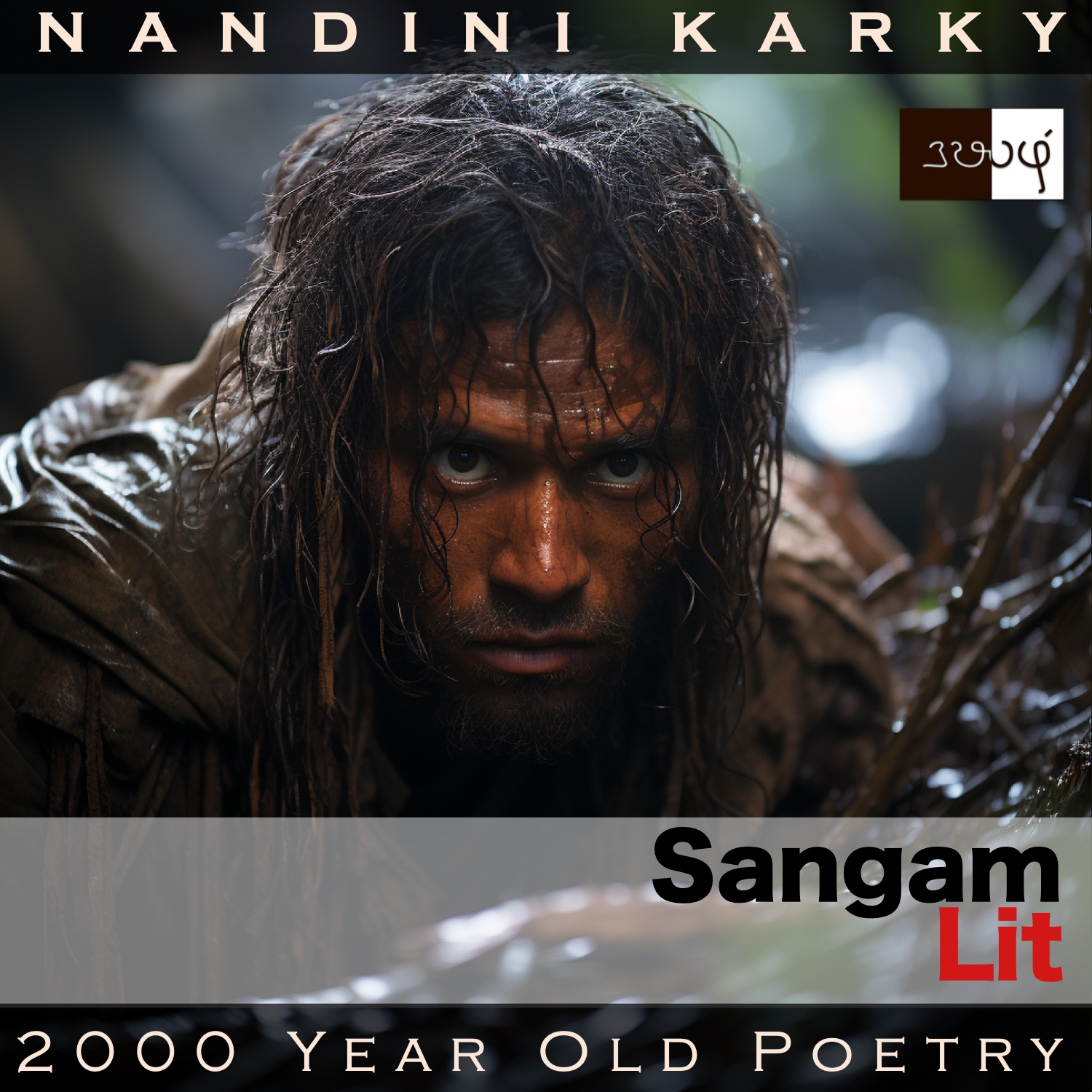Podcast: Play in new window | Download
Subscribe: Apple Podcasts | Spotify | Amazon Music | Android | iHeartRadio | TuneIn | RSS | More
In this episode, we listen to an account of equalising elements, as depicted in Sangam Literary work, Puranaanooru 189, penned by the poet Madurai Kanakkaayanaar Makanaar Nakkeeranaar. The verse is situated in the category of ‘Pothuviyal Thinai’ or ‘Common themes’ and reveals the purpose of having wealth.

தெண் கடல் வளாகம் பொதுமை இன்றி
வெண் குடை நிழற்றிய ஒருமையோர்க்கும்,
நடு நாள் யாமத்தும் பகலும் துஞ்சான்
கடு மாப் பார்க்கும் கல்லா ஒருவற்கும்,
உண்பது நாழி; உடுப்பவை இரண்டே;
பிறவும் எல்லாம் ஓர் ஒக்குமே;
செல்வத்துப் பயனே ஈதல்;
துய்ப்பேம் எனினே, தப்புந பலவே.
A crisp song talking about how things are not so different among people. The poet’s words can be translated as follows:
“Be it a monarch, who thinks not that the world surrounded by cool seas belongs to all and instead brings it all under the white umbrella of his solitary power or the uneducated one, who sleeps not in the midnight hour or in the middle of the day, stalking fast animals all the time, what they eat is just a single measure; what they wear are two things; Similarly, all other things will match out as well; And so, the purpose of wealth is charity; If one wants to use it all for his own self, then a lot will be lost to them.”
Let’s explore the nuances here. The poet first talks about a conquering king, who is not of a philosophical bent of mind thinking the world belongs to everyone. Instead, they seem to want to bring all the lands of the world under their rule. From this king whose power extends over a vast domain, the poet turns to an uneducated hunter, who has no sleep be it day or night, because he needs to stalk and capture animals for his survival. Placing them both, one each on the two pans of a weighing scale, the poet says what the one on the right and the one of the left eat is the same quantity. Next, what they both need as garments are the same – an upper garment and a lower one. Not only this, in every other matter of significance, you will see they both need the same things and thus that scale is going to be in perfect balance no matter the parameter of comparison, pronounces this poet. After illustrating that there is no difference between them, the poet answers the implicit question, and that is, what about the wealth one has and one doesn’t. He says the very point of that wealth that one has is to give to the one who doesn’t, and concludes with the statement that if at all, a person decides to consume the wealth they have all by themselves, then, a lot would be lost to them in life.
What is that which will be lost by the one who uses wealth for himself? That would be virtue, meaning, joy and righteousness, the poet seems to imply. Yet again, we see the imprinted perspective in Sangam times about the ultimate purpose of wealth, and that is not for the self but for others. In that comparison of a king and a hunter, the seemingly opposite ends of the spectrum in matters of lifestyle, we also see that one is a person at the pinnacle of an agricultural society and the other is one among the equals of a hunter-gatherer society, whose livelihood and food has to be earned by his own hands. In spite of such a contrast in lifestyle, they both are the same, in all things that matter, declares this poet with conviction, two thousand years ago – Something which is true for every single human being on this planet, regardless of space and time!




Share your thoughts...